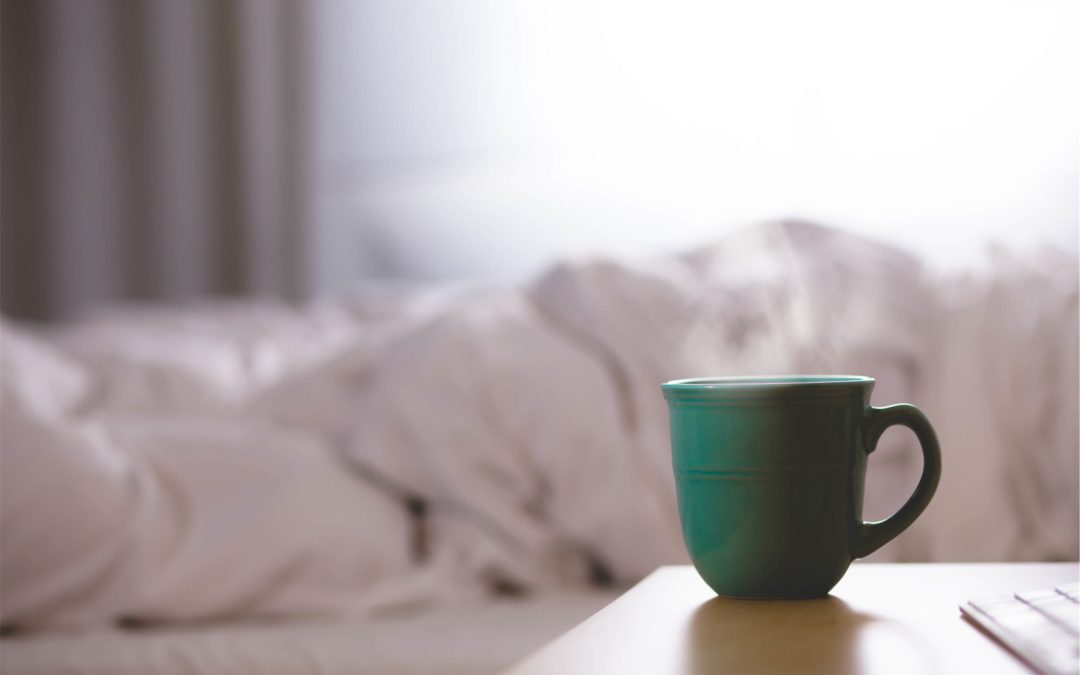I have always known that when I get a solid 8-9 hours of sleep, I feel better and am more productive; yet I was surprised to learn about the far-reaching benefits and risks associated with “good” sleep.
With the pressure to get more done, many Americans are not meeting their basic needs, such as getting enough sleep and rest. Whether it is a hectic travel schedule, a 60+ hour workweek, or issues related to stress, the results are the same – impaired wellness and loss of productivity. According to the Centers for Disease Control and Prevention and a Harvard Medical School study, sleep deprivation costs U.S. businesses more than $63 billion annually in lost productivity.1 This is because people are physically showing up to work but are not fully present mentally. Many corporate cultures, whether implicitly or explicitly, expect employees to always be connected and engaged in work, which can hurt performance over time. As we are becoming more educated about the importance and impact of sleep, this has become an outdated approach to achieving engagement, innovation, and productivity.
Sleep studies continue to point to the fact that cognitive abilities are impaired when one fails to get at least 7 hours of sleep per night on a regular basis. Sleeping 5-6 hours per night for a consecutive period reduces reaction speed, short-term and long-term memory, and the ability to focus and make sound decisions. It can also contribute to longer-term health-related concerns. Sleep is required to remove toxins from our brain cells which affects our ability to focus, problem solve, and cope with stress.
Sleep deprivation is a far more serious issue than executives realize, according to Dr. Charles A. Czeisler, Professor of Sleep Medicine at Harvard Medical School. His recommendation to business leaders is that in order to raise individual and  organizational performance, you need to acknowledge sleep deprivation as a serious issue. According to his research, people who get an average of 4 hours of sleep per night for four or five days become as cognitively impaired as an individual who has been awake for 24 hours. This cognitive state is equivalent to legal drunkenness. Additionally, the ability to function decreases exponentially the longer the sleep deprivation persists. Depending on the nature of the job a person performs, this could pose some real risk and safety concerns.
organizational performance, you need to acknowledge sleep deprivation as a serious issue. According to his research, people who get an average of 4 hours of sleep per night for four or five days become as cognitively impaired as an individual who has been awake for 24 hours. This cognitive state is equivalent to legal drunkenness. Additionally, the ability to function decreases exponentially the longer the sleep deprivation persists. Depending on the nature of the job a person performs, this could pose some real risk and safety concerns.
Research not only indicates a correlation between inadequate sleep and our mental and physical functioning, but it also shows that it can impact our appearance. Now this caught my attention! Consistently sleeping less than 6 hours of sleep per night can make you more wrinkled, saggy, and fat. This is because lack of sleep contributes to the breakdown of collagen and also affects our production of certain hormones: it increases levels of the stress hormone cortisol and the appetite-stimulating hormone ghrelin and decreases the levels of testosterone in men. In addition to obesity and aging, chronic sleep deprivation is also linked to impaired immunity, heart disease, diabetes, and obesity.
According to the National Sleep Foundation, the sweet spot of sleep is between 7-9 hours. For some people, more than 9 hours may be optimal. One of the tools for wellness and productivity is consistent, good sleep. Follow these strategies to ensure good sleep habits:
- Avoid alcohol and sedatives whenever possible as they disrupt your normal sleep patterns and rhythms and can be habit-forming.
- Stop drinking caffeinated beverages after noon.
- Avoid blue light before bedtime, such as watching television or working on your computer or mobile phone.
- Avoid working on high-concentration projects before bedtime, as they stimulate your brain.
- Maintain a consistent routine and schedule for going to bed and waking up, and avoid sleeping in on the weekends if possible. You may consider a nap to catch up on sleep.
- If you are getting less than 6 hours of sleep a night, start gradually adding small increments of minutes or hours until you discover the optimal amount of sleep you need to feel your best.
- Create the habit of winding down and relaxing before you get into bed. You may consider meditation as a means of relaxing and quieting your mind.
- If you aren’t able to sleep at night, take at least a 15 minute nap. It may take you a few days to recover from a deficit of sleep, but some is better than none.
Organizations can promote healthy sleep practices among their employees. Awareness is the most significant initial practice. Incorporating sleep education into Safety and Wellness programs is one recommended approach. Employers may  also leverage the resources of healthcare and wellness providers for sleep disorder screening, treatment and education. According to a 2013 WSJ article, Aurora Healthcare, a large hospital system in Wisconsin, offered an online course for employees who experienced insomnia. Based on follow up through surveys and performance measurements, Aurora estimates an average savings of $672 per participant. Leaders and managers have an opportunity to inspire others by modeling positive health and sleep habits, as well as being realistic with their scheduling and expectations of others. A manager who has a practice of emailing her/his employees at 2am is not necessarily modeling healthy expectations. There are also other ways for employers to engage employees and instill personal ownership for their health and performance. As part of Xenium’s Wellness program, employees participate in a Sleep Challenge where they track their sleep over 60 days with the goal of averaging 7-8 hours per night. The result is raised awareness and improvement in sleep habits.
also leverage the resources of healthcare and wellness providers for sleep disorder screening, treatment and education. According to a 2013 WSJ article, Aurora Healthcare, a large hospital system in Wisconsin, offered an online course for employees who experienced insomnia. Based on follow up through surveys and performance measurements, Aurora estimates an average savings of $672 per participant. Leaders and managers have an opportunity to inspire others by modeling positive health and sleep habits, as well as being realistic with their scheduling and expectations of others. A manager who has a practice of emailing her/his employees at 2am is not necessarily modeling healthy expectations. There are also other ways for employers to engage employees and instill personal ownership for their health and performance. As part of Xenium’s Wellness program, employees participate in a Sleep Challenge where they track their sleep over 60 days with the goal of averaging 7-8 hours per night. The result is raised awareness and improvement in sleep habits.
For all of you Type A, Over-Achievers out there – remember, creating good sleep habits can make a difference in production, creativity, and overall wellness. Don’t fool yourself into thinking that putting in more hours and working late into the evening is contributing to getting ahead. In actuality, getting a good night’s sleep will improve productivity during waking hours – and you’ll look better, feel better, and possibly live longer, too!
Sources
- Go Ahead, Hit the Snooze Button, Weary Workers Learn to Count Sheep Using Special Lighting, Office Nap Pods, by Lauren Weber, Wall Street Journal, updated Jan. 23, 2013
- Sleep Deficit: The Performance Killer, by Bronwyn Fryer, HBR, 2006
- Sleep Deprivation is Killing You and Your Career, by Dr. Travis Bradberry, 2014
- Why Sleep is so Important
